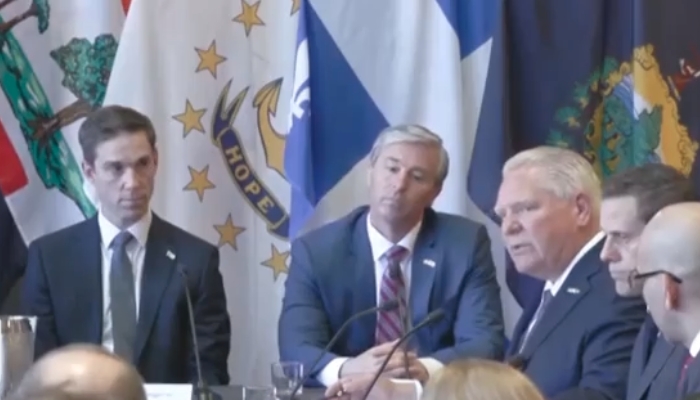In an unprecedented display of cross-border solidarity, Ontario Premier Doug Ford has joined forces with U.S. Great Lakes governors to push back against the looming threat of President Trump’s proposed tariffs on Canadian imports. This alliance represents a critical challenge to protectionist policies that experts warn could devastate integrated supply chains across North America.
“What we’re seeing is a coalition of regional economic interests transcending national boundaries,” explains Dr. Meredith Wilson, trade policy analyst at the University of Toronto. “The Great Lakes region functions as a cohesive economic ecosystem, with billions in daily trade flowing across these borders.”
The joint statement, signed by Ford alongside governors from Michigan, Ohio, and other Great Lakes states, emphasizes the deep economic interdependence between these jurisdictions. According to recent Canada News analysis, nearly $400 billion in annual trade passes between Ontario and its American neighboring states, supporting an estimated 1.5 million jobs in the region.
This regional resistance highlights the complex realities of North American trade that often get oversimplified in national political narratives. While Washington and Ottawa engage in high-level diplomatic negotiations, subnational leaders are taking direct action to protect their economic interests.
“We’re simply trying to protect jobs on both sides of the border,” Premier Ford stated during yesterday’s press conference. “When automotive parts cross the border seven times during production, tariffs don’t just hurt Canadian businesses—they devastate American manufacturers and consumers too.”
Economic projections from the Royal Bank of Canada suggest that proposed aluminum and steel tariffs could reduce Ontario’s GDP by up to 2% within the first year of implementation, with ripple effects throughout the CO24 Business sector. American manufacturing states would face similar consequences.
The united front comes as President Trump has repeatedly threatened to impose sweeping tariffs on Canadian goods as part of his “America First” agenda, despite warnings from economists across the political spectrum about the potential self-inflicted economic damage.
Michigan Governor Gretchen Whitmer’s office released data showing that her state alone could lose upwards of 50,000 manufacturing jobs if significant disruptions occur in cross-border supply chains. “This isn’t about politics—it’s about protecting our regional economy,” Whitmer noted in the joint statement.
The Canada-U.S. relationship has weathered trade tensions before, most notably during the NAFTA renegotiations that resulted in the USMCA agreement. However, CO24 Politics observers note that this level of formal cooperation between premiers and governors represents an evolution in regional diplomacy.
International trade experts suggest this alliance could significantly influence national policy discussions. “When governors from swing states join forces with Canadian premiers, it creates political pressure that’s difficult for any administration to ignore,” noted former U.S. trade negotiator Thomas Reynolds.
As automotive, agricultural, and manufacturing sectors brace for potential disruption, the question remains: will this regional coalition succeed where traditional diplomatic channels have struggled, or are we witnessing the beginning of a fundamental restructuring of North American trade relationships that will reshape our economic landscape for generations to come?














